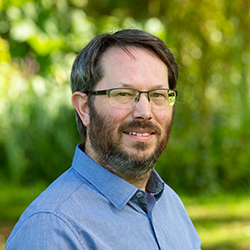Audio/acoustics machine learning
One fully-funded PhD studentship including fees and stipend is available for an outstanding candidate to join the Centre for Vision, Speech and Signal Processing (CVSSP), part of the University of Surrey’s Institute for People-centred Artificial Intelligence (PAI), in partnership with Fraunhofer Institute for Integrated Circuits IIS.
Start date
1 October 2024Duration
3.5 yearsApplication deadline
Funding source
Project partners: Fraunhofer IIS and University of SurreyFunding information
A standard stipend of £18,622 per year (2023-24).
Supervised by
About
This is an exciting opportunity for a budding researcher to fulfil their potential at the intersection of Artificial Intelligence (AI) and Audio/acoustics, an area of machine learning called Machine Listening. The PhD project brings together world-leading audio experts to develop state-of-the-art techniques as a widely-applicable embedding of acoustic environments.
Based in Guildford, the project forms a collaboration between AudioLabs, Fraunhofer IIS (Erlangen, Germany) and CVSSP at the University of Surrey. It builds on work by the co-investigators into virtual acoustics, spatial audio rendering, optimisation of acoustical systems, training of deep neural networks and exploration of object-based audio for making translatable immersive experiences. As such, the research is expected to include a mixture of practical and computational experiments, based at the University. The successful candidate will have the chance to spend time in the labs at Fraunhofer, interacting with colleagues there and exchanging knowledge.
The Centre for Vision, Speech and Signal Processing (CVSSP) at the University of Surrey is ranked first in the UK and among the top 4 in Europe in computer vision research. CVSSP conducts ground-breaking research in audio-visual AI and machine perception for society’s benefit through technological innovations in healthcare, security, entertainment, robotics and communications. CVSSP’s advances in machine listening, spatial audio, 3D computer vision and audio-visual AI have enabled award-winning technologies for immersive and interactive media.
The Audio and Media Technologies division of Fraunhofer IIS has shaped global standards and technologies in audio and moving-picture production. From mp3, through the co-development of AAC and the Digital Cinema Initiative test plan, almost all phones, computers and consumer devices contain technologies from Erlangen today. The next generation of best-in-class media technologies further elevates the user experience (e.g., MPEG-H Audio, xHE-AAC, EVS, LC3/LC3plus, Symphoria, Sonamic and upHear). Fraunhofer IIS responsively develops technology that makes memorable moments.
We would welcome an outstanding student from any background to join our inclusive world-renowned research centre at the start of a new partnership to take advantage of this vibrant collaborative academic environment.
Eligibility criteria
Open to any UK or international candidates. Up to 30% of our UKRI-funded studentships can be awarded to candidates paying international rate fees. Find out more about eligibility.
You will have a strong interest in audio and machine learning, and demonstrate a high level of academic achievement in relevant subject areas and a clear aptitude for scientific, engineering research. We will need to be convinced that you have the necessary background knowledge and research skills to begin your doctoral training. You will have a 1st or 2:1 BSc/BEng degree (or equivalent) and either an MSc/MEng in a relevant engineering or scientific discipline or equivalent specialist experience. You will be able to demonstrate excellent mathematical, analytical and computer programming skills. Advantage will be given to applicants with experience in one or more of the following: machine listening, deep learning, acoustics, signal processing, computer vision, spatial audio, NLP, statistical analysis, software development, academic writing. You will have advanced research skills, evidenced by a significant Bachelors/Masters project, for example, involving experimental research, appropriate use of the literature, computer-based simulations and a formal dissertation-style report.
You will need to meet the minimum entry requirements for our PhD programme.
How to apply
Applications should be submitted via the Vision, Speech and Signal Processing PhD programme page. In place of a research proposal you should upload a document stating the title of the project that you wish to apply for and the name of the relevant supervisor.
Studentship FAQs
Read our studentship FAQs to find out more about applying and funding.
Application deadline
Contact details

Studentships at Surrey
We have a wide range of studentship opportunities available.
